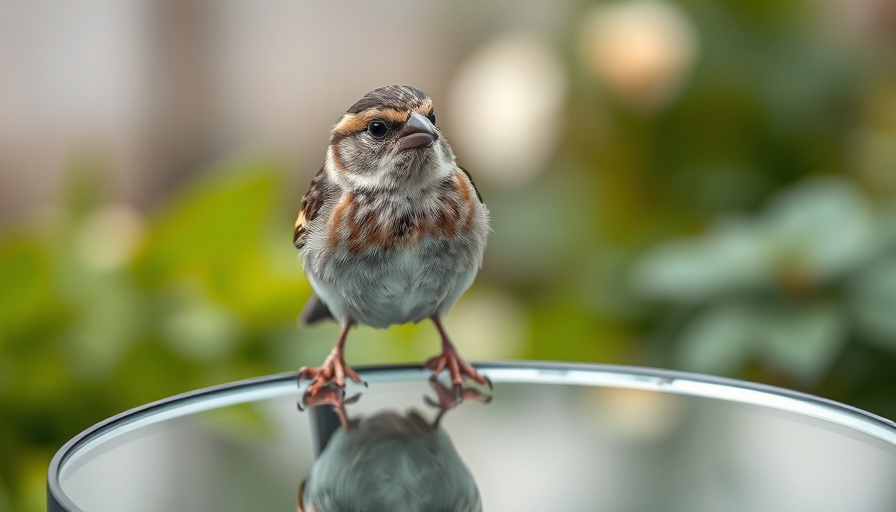
The Unexpected Effects of Mirrors in the Garden
Many gardeners find joy in creating enchanting outdoor spaces and enhancing their gardens with mirrors. However, it’s crucial to understand that while these reflective surfaces can add depth and beauty, they can also influence bird behavior in surprising ways. The question remains: Do birds like mirrors in the garden?
How Mirrors Affect Bird Behavior
Birds, in general, lack the cognitive ability to recognize their own reflections. This inability shapes their interactions with mirrors, which they often perceive as intruders rather than reflections of themselves. As reported in several studies, when birds encounter their own image in a mirror, their natural territorial instincts can trigger aggressive behavior.
For instance, a robin might repeatedly attack a mirror as it perceives the reflection as a rival. This behavior can lead to unnecessary stress for the birds and could result in physical harm.
Understanding Avian Perception
From an avian perspective, mirrors can distort reality. When flocks of birds encounter mirrors, some may experience heightened aggression towards their reflections. In their natural habitats, birds are usually social creatures that thrive in groups. Mirrors can trick them into thinking they are alone or that their environment is more dangerous than it truly is. Hence, installations meant to enhance beauty can inadvertently cause psychological distress.
Research has indicated that only a few species, like magpies, exhibit self-recognition. This lack of self-awareness in most bird species leads to confusion and distress, underlining the importance of creating gardens that do not disrupt their natural behaviors.
Alternatives for Bird-Friendly Gardens
Fortunately, gardeners can still create captivating spaces without using mirrors. Consider using ornamental elements like shimmering wind catchers or strategically placed colorful flowers that attract birds without causing confusion. These alternatives can maintain the beauty of a garden while ensuring it remains an inviting, stress-free environment for avian visitors.
As we rethink how we design our outdoor spaces, let's prioritize the well-being of the creatures inhabiting them. By understanding the impact of our decorative choices, we can foster healthier and more harmonious relationships with our feathered friends.
 Add Row
Add Row  Add
Add 




 Add Row
Add Row  Add
Add 

Write A Comment